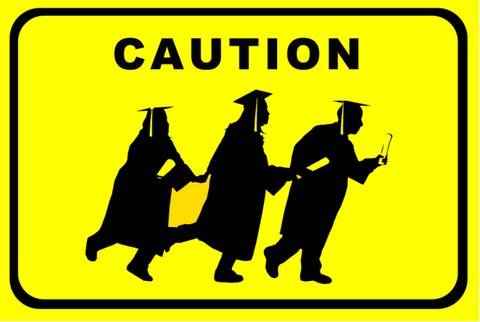With the reintroduction on Friday of AB 130, the California Dream Act, state legislators have given yet another indication that California will be a conducive climate to building a bridge with the illegal immigrant population while other states seek to strictly enforce federal law.
Authored by State Assemblyman Gil Cedillo and effective July 1 of this year if Governor Jerry Brown signs it into law, the bill would require the Trustees of the California State University and the Board of Governors of the California Community Colleges to pave the way for illegal immigrants to apply for and participate in state-administered student aid programs. Under the bill, students (among whom are aliens without lawful immigration status) are to have been here for a designated period of time. As reported by the Orange County Register, students who have attended high schools, technical schools, and adult schools are all eligible and would also be required to file an application for legal residency. Furthermore, it would be in addition to the fact that illegal immigrants within the state can already receive in-state tuition.
Although its intentions are admirable in the sense that it attempts to grant a chance at success to students who are already paying tuition, the legislation is problematic on more than one front.
Take for instance, the fact that the fiscal impact, according to the news report, is still undetermined. With a state that is sinking due to its fiscal irresponsibility over the years, not knowing the fiscal impact of the act is certainly not a good start. While Brown has gotten off to a good start as governor by proposing massive cuts to the state budget, which also includes $1 billion in cuts to the education budget, the unknown impact of Cedillo's bill would seem to only cancel out the efforts of getting this state back on track.
One of the criticisms of the bill from anti-illegal immigration activists, according to the report, is that it rewards bad behavior by enlarging the pool of those having to compete for state financial aid, thus forcing legal students to struggle with illegals in an already cash-strapped education system. The issue here is not that academic competition is a bad thing. Competition in the classroom, after all, is what spurs students to strive for the best. The bigger issue here is the kind of message that the California Dream Act sends to future illegal immigrants. On the one hand, it may demonstrate that the American Dream can be achieved by those that come here. On the other hand, it also sends the message that one can illegally come here without any real consequences.
Finally there's the aftermath of such legislation. One of the justifications for the bill is that it will inject qualified students into the California workforce. Currently experiencing a 12.4 percent unemployment rate as of November 2010, what good will it be to enlarge the number of participants in a resource-constricted financial aid pool if there's not bound to be a job waiting for them when they graduate?
Jerry Brown's first efforts to cut the budget are admirable in his second coming, but are counterintuitive if he signs this bill without any plan to absorb its myriad effects. Without such a plan, I believe it really makes us question whether the new governor is serious about reining in the budget or if he will just demonstrate more of the same old political pandering.

